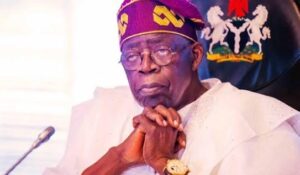Presidency Urges Bauchi Governor to Retract Threat Against Tinubu Over Tax Reforms
Presidency Urges Bauchi Governor to Retract Threat Against Tinubu Over Tax Reforms

President Bola Ahmed Tinubu
The Presidency has called on Bauchi State Governor, Bala Mohammed, to retract his “inflammatory” statement regarding President Tinubu’s Tax Reform Bill. The statement, where the governor declared, “We’ll show Tinubu our true colour,” was deemed inappropriate and unrepresentative of the North’s stance on the matter.
In a post shared on his X (formerly Twitter) handle, Tinubu’s Special Adviser on Media and Public Communication, Mr. Sunday Dare, responded to the governor’s remarks made during a Christmas visit by the Christian community to the Bauchi State Government House on December 25, 2024.
Governor Mohammed had expressed strong opposition to the Tax Reform Bill, accusing it of being “anti-northern” and disproportionately benefiting certain parts of the country. He warned that if the policies continued, the northern region would “show its true colours.” The governor further argued that the reforms could harm the economy and threaten national unity, urging the Federal Government to reconsider its approach and adopt more inclusive policies.
In response, the Presidency stated that such remarks did not reflect the collective views of the northern region and called for a more constructive dialogue between states and the Federal Government. “I urge Governor Mohammed to retract these confrontational statements and focus on engaging with the Federal Government to address any concerns over the Tax Reform Act,” the statement said.
The Presidency also emphasized that the northern region, like others, desires collaboration with the Federal Government to tackle national issues. Instead of issuing threats, the statement suggested that the governor’s efforts would be better directed at promoting poverty alleviation initiatives and ensuring the proper use of federal resources, such as the N144 billion allocated to the state.
“The Tax Reform Act and the increased federal allocations are beneficial to all states, including the North. This is the type of leadership Nigeria needs—one that builds bridges, not barriers, and prioritizes the collective good,” the Presidency added, offering a Hausa proverb in conclusion: “Gyara kayanka baya zama sauke mu raba” (Make improvements in your own house before asking others to do so).
In October 2024, President Tinubu introduced several tax reform bills aimed at overhauling Nigeria’s tax system. The four bills—The Nigeria Tax Bill 2024, the Tax Administration Bill, the Nigeria Revenue Service Establishment Bill, and the Joint Revenue Board Establishment Bill—seek to simplify tax laws, improve tax compliance, and increase government revenue to support infrastructure and social services.
Key provisions of the reforms include raising the Value Added Tax (VAT) rate from 7.5% to 10% by 2025, with further increases planned, and imposing a 5% excise duty on telecommunications services. The reforms also include tax exemptions for small businesses earning less than ₦50 million annually and a gradual reduction in corporate income tax rates to promote economic growth.
However, the proposed reforms have sparked significant controversy, especially among northern political leaders and lawmakers, who argue that changes to the VAT distribution formula could disadvantage economically weaker northern states. Concerns have also been raised about the potential impact of the VAT hike and new excise duties on consumers and businesses.
Several northern governors and traditional rulers have called for the withdrawal or reconsideration of the reforms, urging further consultations to ensure that the changes are fair and inclusive of all regions. Despite these concerns, the Presidency has stated that consultations will continue while the bills remain under review by the
National Assembly.
TRENDING SONGS
 NNPC Boss Ojulari Bags UK Energy Institute Fellowship
NNPC Boss Ojulari Bags UK Energy Institute Fellowship
 Shock in Anambra: Bride Disappears Moments Before Wedding
Shock in Anambra: Bride Disappears Moments Before Wedding
 Nigerian Woman Returns ₦330 Million Accidentally Credited to Her Account
Nigerian Woman Returns ₦330 Million Accidentally Credited to Her Account
 APC Don Reach Morocco?’ VeryDarkMan Reacts to Seyi Tinubu Poster
APC Don Reach Morocco?’ VeryDarkMan Reacts to Seyi Tinubu Poster
 Bride Breaks Down in Tears as Wedding Meals Were Kept Secretly While Guests Go Home Hungry
Bride Breaks Down in Tears as Wedding Meals Were Kept Secretly While Guests Go Home Hungry
 Odogwu by Day, Robber by Night: How Marriage Joy Turned Into Tragedy
Odogwu by Day, Robber by Night: How Marriage Joy Turned Into Tragedy
 Nigerian Officials Allegedly Pocket N4–6B Weekly Through Smuggling Cartels at Seme–Badagry Border
Nigerian Officials Allegedly Pocket N4–6B Weekly Through Smuggling Cartels at Seme–Badagry Border
 Ahmad Yerima: Naval Officer to Face No Sanctions After Clash with Wike – Matawalle
Ahmad Yerima: Naval Officer to Face No Sanctions After Clash with Wike – Matawalle
 Trending Video: Muslim Man Joins Wife in Hallelujah Challenge ‘Dress Like Your Miracle’ Night
Trending Video: Muslim Man Joins Wife in Hallelujah Challenge ‘Dress Like Your Miracle’ Night
 Woman Seeks Advice as Late Brother’s Wife Refuses to Mourn Him Following His Death With Alleged Mistress
Woman Seeks Advice as Late Brother’s Wife Refuses to Mourn Him Following His Death With Alleged Mistress
Share this post with your friends on ![]()













